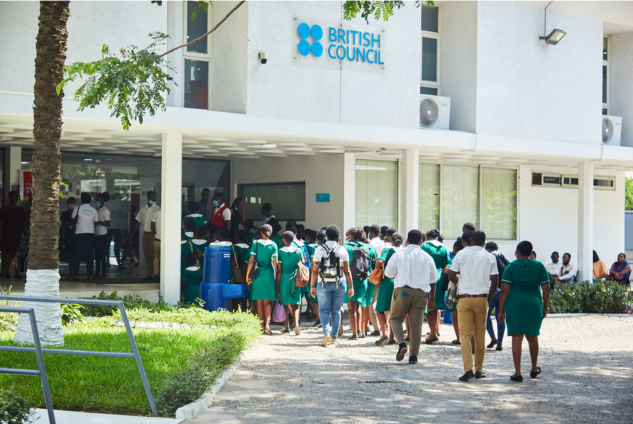The latest Ghana Human Development Report warns that the country’s health system could worsen if immediate steps are not taken to address the mass exodus of doctors and nurses trained in Ghana.
The report asserts that so far, 24 percent of nurses trained in Ghana are currently working abroad due to poor working conditions.
The situation is even worse for doctors trained in Ghana, with 50 percent having also left.
"It is estimated that 50 percent of doctors and 24 percent of nurses trained in the country are working abroad due to poor working conditions for health personnel in the country," the report says.
The document was authored by the United Nations Development Programme in partnership with the Statistical Service and the National Development Planning Commission.
The study says the health sector is in a precarious state due to this development and requires policy and pragmatic measures to avert a total shutdown of the sector.
"Although not new (Anarfi et al., 2010), this has the potential to further worsen the precarious health system, a situation which would require some policy and pragmatic interventions."
The latest report is themed 'The Future Value of Work in Ghana'.
The report noted that during the COVID-19 outbreak, the health system demonstrated its robustness in coping with emergencies.
Nonetheless, the system faces challenges, including shortages of essential materials, such as personal protective equipment (PPE) during the COVID-19 outbreak, and the availability of qualified personnel.
The latter has been exacerbated by the emigration of qualified health personnel (Global Partnership Network, 2024).
The report also discussed Ghana's health policy, which identified 11 areas that will require strengthening. Among them are health promotion, palliative, and rehabilitative care, which have lagged behind preventive and curative care.
“Ghana is at a stage where health promotion which deals with primary healthcare and environmental issues is needed to propel healthcare to a level which can have both direct and indirect impact on human capital development," the document noted.
It also proposed the adoption of a life course approach to health delivery which will make it possible to deal with various categories of the population such as the aged, persons with disability, and other marginalised persons such as those in urban slums, who in most cases, are unable to fully take advantage of curative and preventive care which are available.
Below is the full report:
Latest Stories
-
Bridging the skills gap: Ghana’s imperative shift towards TVET to combat graduate unemployment
40 minutes -
Chief Imam calls for an end to Gaza atrocities in Eid-Al-Adha message
3 hours -
High Court restrains GRNMA from continuing with strike for 10 days
5 hours -
Bole gets new DVLA office
5 hours -
CCCFS applauds Mahama’s environmental pledges, urges stronger waste management measures
5 hours -
Uphold integrity in engineering – IET President charges newly inducted professionals
5 hours -
World Menstrual Hygiene Day: ofi distributes reusable sanitary pads with impactful celebrations at Konongo-Odumase SHS
7 hours -
Ukraine and Ghana to deepen cooperation in cybersecurity and digital innovation
7 hours -
Daily Insight for CEOs: Data-driven decision-making – A CEO’s edge in uncertainty
7 hours -
This Saturday on Newsfile: GH¢1 fuel levy and OSP declaring Ofori-Atta wanted again
7 hours -
Mahama announces steps to improve Islamic education nationwide
8 hours -
Eidul al-Adha: Drugs worse than alcohol – Imam Suleman warns Muslim youth
8 hours -
Fuel Levy: What crime have Ghanaians committed? – Dr Amin Adam questions gov’t
9 hours -
Postecoglou sacked by Spurs after Europa League win
10 hours -
Employee fraud is everywhere, be intentional about stopping it – Expert counsels
11 hours

